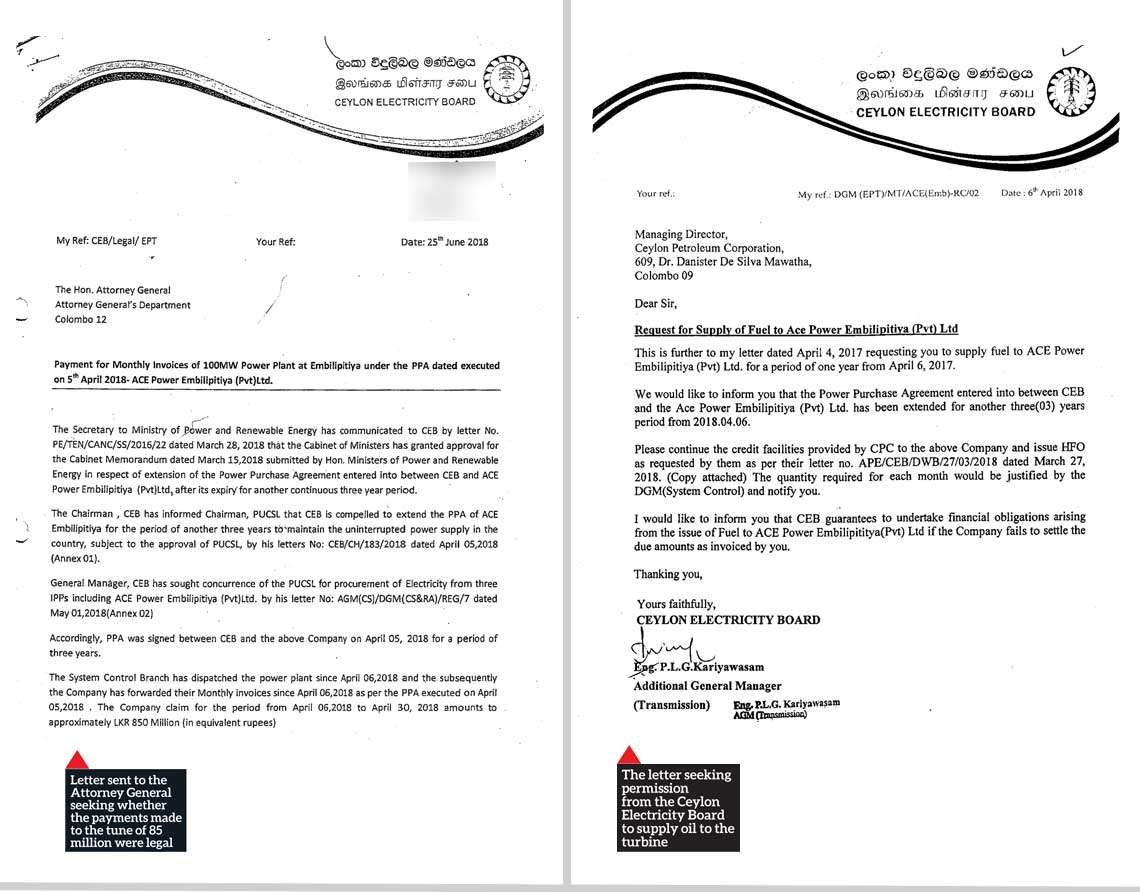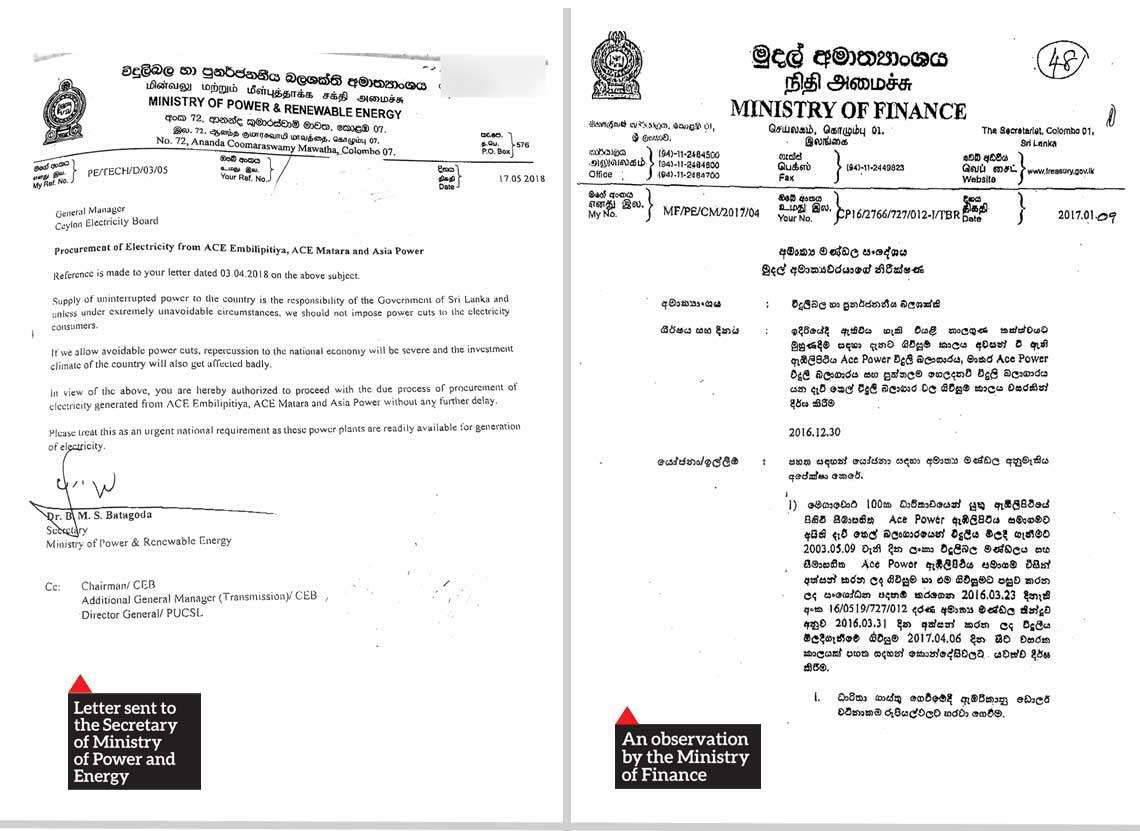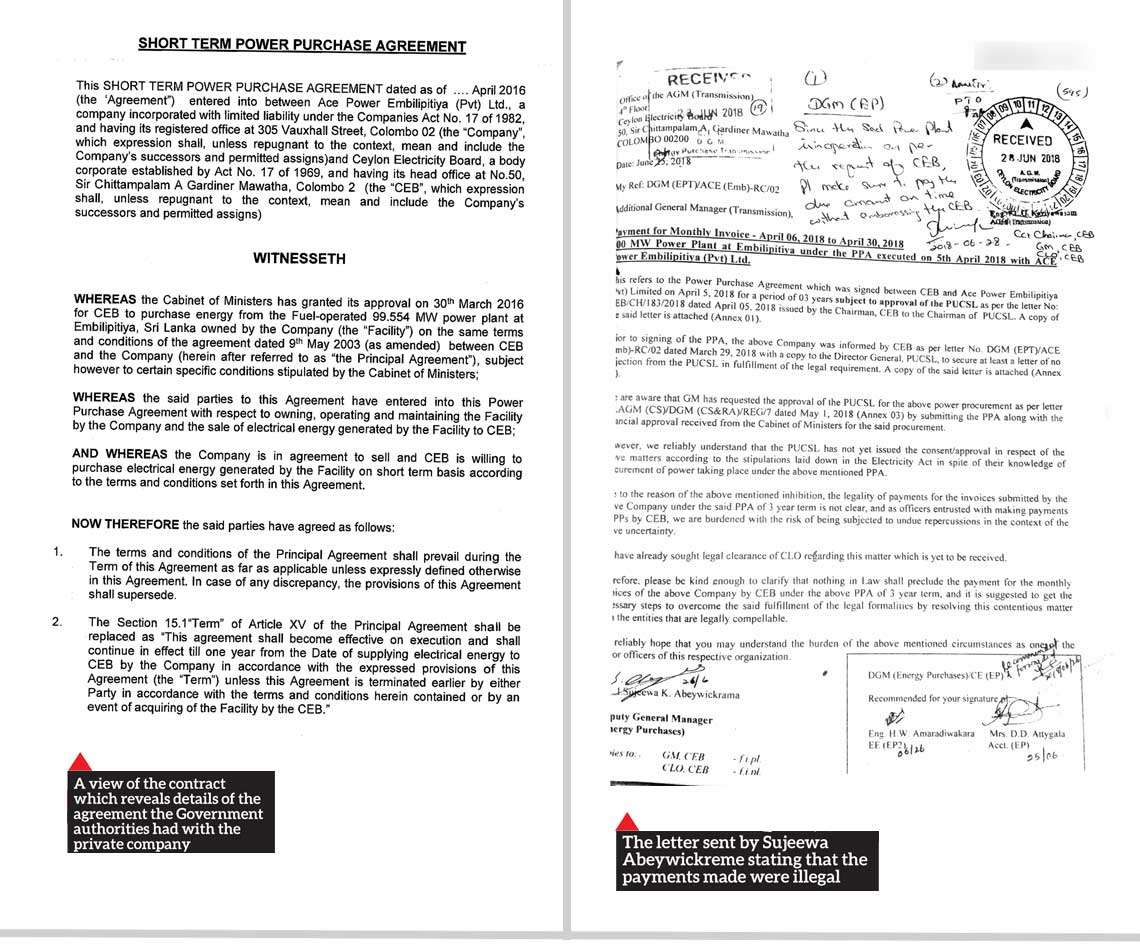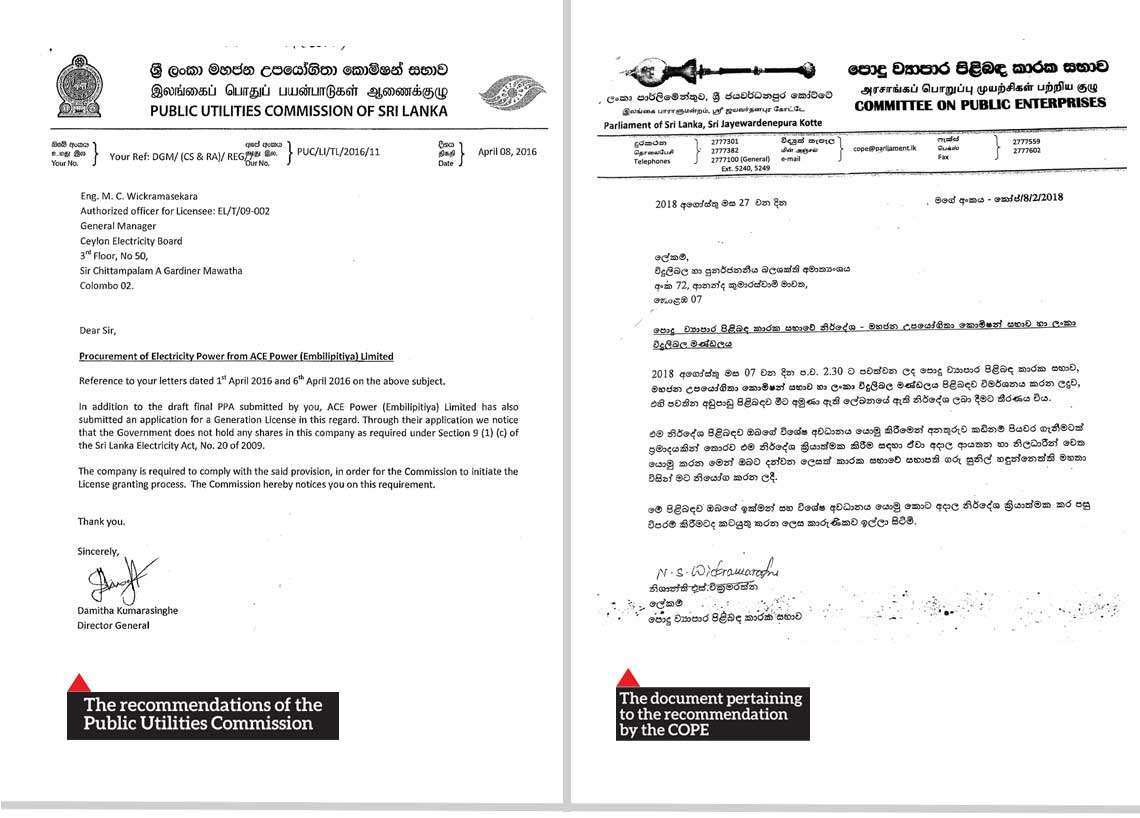Reply To:
Name - Reply Comment
At a time when electricity has become an essential need, people rarely inquire into the waste of power due to actions of the ‘Electricity Mafia’ when settling their monthly bills. This colossal wastage of millions in public money is a result of fraudulent power transactions made by those at the helm of institutions, which supply power. This is a fact which many are unaware of. This week’s truthful investigation is a profile of this phenomenon.

 As and when issues arise regarding the amount of electricity generated by power stations of the Ceylon Electricity Board (CEB), electricity is purchased from private power stations. This is in order to maintain the country’s energy supply without interruption. These purchases of power from the private sector have to be done not arbitrarily, but according to the provisions of the Act governing the supply of power while adhering to tender procedures. There are certain institutions which are directly involved when purchasing power, the primary institution being the Ceylon Electricity Board. Second, the Ministry of Power and Energy and the third is the Public Utilities Commission of Sri Lanka (PUCSL). Every purchase must first receive Cabinet approval, following which the approval of the PUCSL must be sought.
As and when issues arise regarding the amount of electricity generated by power stations of the Ceylon Electricity Board (CEB), electricity is purchased from private power stations. This is in order to maintain the country’s energy supply without interruption. These purchases of power from the private sector have to be done not arbitrarily, but according to the provisions of the Act governing the supply of power while adhering to tender procedures. There are certain institutions which are directly involved when purchasing power, the primary institution being the Ceylon Electricity Board. Second, the Ministry of Power and Energy and the third is the Public Utilities Commission of Sri Lanka (PUCSL). Every purchase must first receive Cabinet approval, following which the approval of the PUCSL must be sought.
Following this procedure, the CEB entered into an agreement with a private power station named ACE Power Embilipitiya on March 9, 2003 to purchase power for a ten-year period. According to this agreement the price for one unit of power was calculated adding the total cost of the investment the relevant company has made. This was done with the aim of this power station being acquired by the Government at the expiration of the agreement. This was because the life expectancy of this power station had been estimated as 20 years. 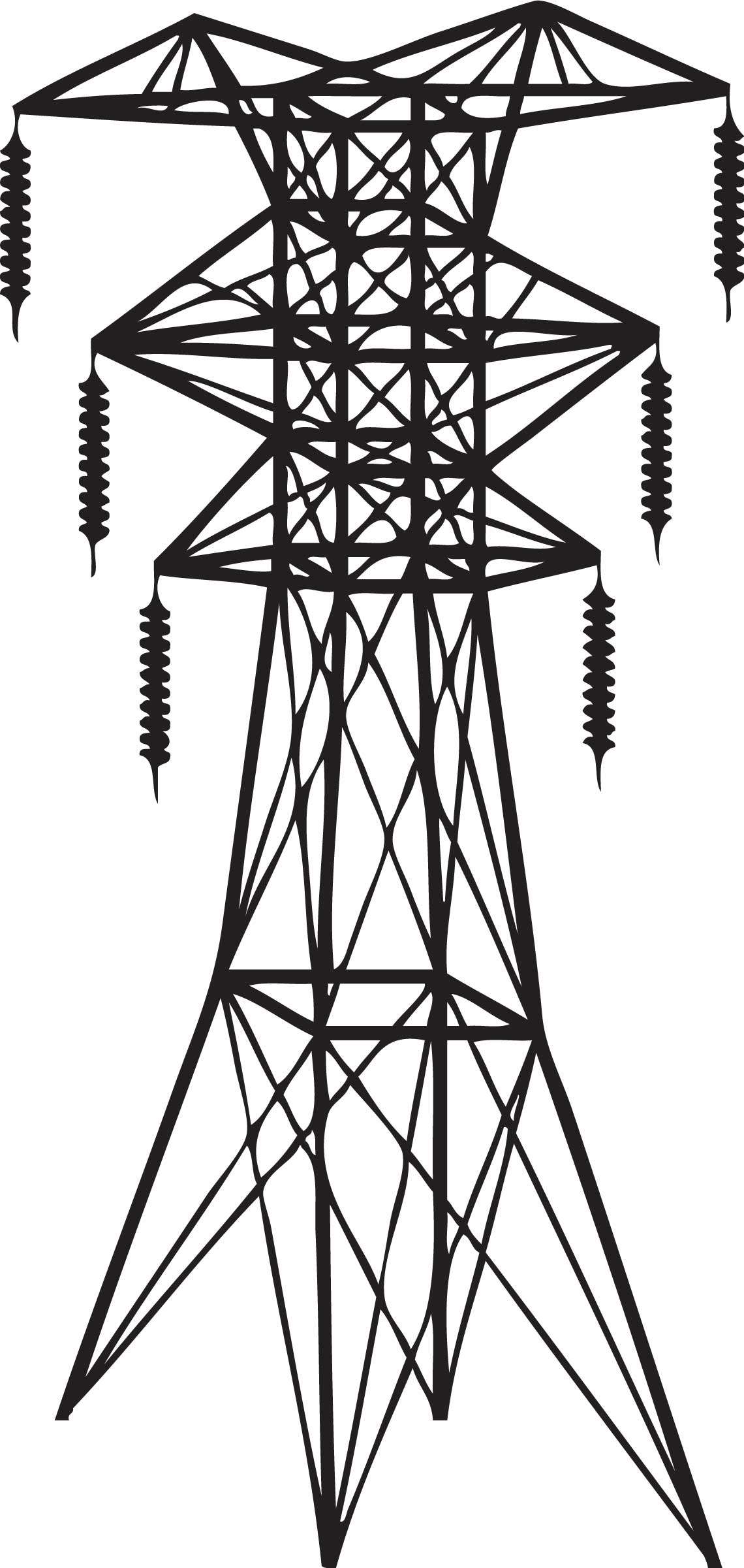
Accordingly Rs. 29 was paid to the ACE Power Embilipitiya Power Station for each unit of power purchased by the CEB. At the end of ten years and with the lapse of the agreement the total investment value of the company too had been settled with the company. This was nearly Rs 3 billion. With the lapse of the agreement purchasing power from this company ceased on April 6, 2015. The next episode in this story regarding the ACE Embilipitiya power station began from 2016.
The Minister of Power and Energy presenting a Cabinet Paper on March 18, 2016, requested the purchase of private power stations regarding which the agreements had lapsed. ACE Power Embilipitiya Company was one among them. The Minister in the Cabinet paper mentioned that the Government had taken a policy decision not to extend agreements entered unto by CEB with private power stations. There had also been allegations that under these agreements the CEB had to pay a high price for obtaining power. After this Cabinet Paper was submitted, a special sub committee appointed by the Cabinet through a meeting decided on having further discussions with the owners of private power stations including ACE Power Embilipitiya with the view of purchasing these power stations. This committee was chaired by the secretary of the Ministry of Foreign Employment. The other members were the secretary of the Ministry of Power, the General Manager of the CEB and a Director General.
The relevant committee, in addition to their discussion on the purchase of the three companies, also discussed the possibility of purchasing power from the ACE Power Embilipitiya Company once again. This was followed by the submission of a Cabinet Paper dated March 29, 2016, requesting permission for the purchase of power during an emergency. Even though there was no urgency to purchase power for a period of one year, permission had been sought to obtain power from ACE Power Embilipitiya for one year while the request to enter into an agreement with the said company received approval of the Cabinet. Under this agreement it was decided to reduce 5% from capital repayments, as the company had paid back more than the total capital expenditure during the period 2004 to 2015. The price of a unit of supply had been decided upon based on capital expenditure, cost of generation and other related factors.
Accordingly the General Manager of CEB forwarded a letter dated April 1, 2016 to the PUCSL requesting the purchase of power from Ace Power Embilipitiya for a period of one year. This letter received a response by the PUCSL on April 7. Through this letter the PUCSL ruled that it could not justify the decision of the CEB to purchase power from the said company. It is stipulated in clause number 43 of the CEB Act that regarding the purchase of power the established tender procedure has to be followed.
However the tender procedure was not followed in the instance of this purchase. Although ACE Power Embilipitiya had again applied for a licence for the generation of electricity by the end of 2015, the PUCSL informed the company that they will not be issued with a licence. PUCSL giving reasons for this refusal stated that to issue a license to power stations with over 25 Megawatts output, the general treasury should make a declaration that a certain amount of ownership shares of the company has to be possessed by the Government.
According to the Sri Lanka Electricity Board Act number 20 of 2009 and Sri Lanka Electricity (Amendment) Act number 31 of 2013, the suitability for making a request for a power generation over 25 Megawatts lies with the CEB, a Local Council body or a state corporation, incorporated under company ordinance number 7 of 2007, and holding a number of shares as determined by the Minister of Finance and decided upon by the secretary to the treasury, a company in which the state owns more than 50 % of shares or an affiliated company. The response noted that ACE Power Embilipitiya was a completely private owned power station.
While the generation of power continued without the license issued by the PUCSL, on December 29, 2016, another Cabinet Paper surfaced requesting the purchase of power from ACE Power Embilipitiya and two other companies for a period of one year. This request too was made outside the tender procedure.
The Minister of Power and Energy presenting a Cabinet Paper on March 18, 2016, requested the purchase of private power stations regarding which the agreements had lapsed. ACE Power Embilipitiya Company was one among them
The Minister of Finance making his observations regarding this Cabinet paper pointed out that the dry weather present would only remain until the end of April and therefore extending the agreement for a one year period would be an additional cost to the CEB. He observed that considerations should be made over the possibility of purchasing power only during the first six months. Making his observations further on January 9, 2017 the Minister emphasised that since the Cabinet had already decided to purchase three private power stations, terminating discussions and cancelling the three agreements would reduce the expenses of the CEB. He noted that steps should therefore be taken to expedite the purchasing of these three power stations.
However in 2016 ACE Power Embilipitiya was awarded with the contract circumventing the tender procedure to supply power for a period of one year and in 2017 the same company was awarded with the contract to supply power for another one year’s period sans the competitive tender procedure.
It is well worth mentioning that in accordance with the Sri Lanka Electricity Board Act, electricity could be purchased outside the established tender procedure, only under exceptional situations like when a sovereign state makes an award for the Government of Sri Lanka, or during an emergency situation decided by the Cabinet. An emergency situation is defined as a national disaster situation or when the main generating transmission breaks down and power generation ceases. In such a situation, following a Cabinet decision, power could be purchased with the approval of the PUCSL. It is noted that in the years 2016 and 2017, a situation warranting the above conditions or an extended break down in any of the stations had not been observed by the PUCSL.
Deputy General Manager (DGM - Power Purchasing) of the CEB Sujeewa Abeywickrama informed his superior, the additional General Manager of Transmission division, in writing on February 5, 2018 with a copy to the General Manager CEB, that extending agreements with ACE Power Embilipitiya contradicts earlier cabinet decisions and clause number 43 of the Electricity Board Act.
While this process was continuing, another Cabinet Paper dated March 15, 2018 was presented to extend the agreements with ACE Power Embilipitiya and the other private power stations for a further three years, deviating from the established procedure of competitive tenders for procurement of power. Accordingly due to the contract with ACE Power Embilipitiya to purchase power expiring on April 6, 2015, the authorities continued to obtain power deviating from the established competitive tender procedures, for a five year period between 2016 and 2021 treating it as emergency power purchase. The PUCSL meanwhile continued to reject the issuance of a power generating license stating that this action is inconsistent with clause number 43 of the Act.
Even in the absence of a license to generate power and also the formal approval of the PUCSL, an agreement was entered unto with ACE Power Embilipitiya Company once again on April 5, 2018. In the agreement the CEB agreed to repay once again the funds already invested by the company under the original agreement. DGM Sujeewa Abeywickrama made note of this and informed in writing to all his superiors that these charges had to be amended.
Following the extension of this agreement for the purchase of power from ACE Power Embilipitiya, the invoice for the payment for April had been received. The amount payable to the private power station was in the region of Rs 850 million for a period of 22 days in April. DGM Abeywickrama, refusing to make this clearance, stated in writing that this payment was illegal.
The events that followed took everyone by surprise. Even before the Attorney General’s views on the legality of the agreement were obtained DGM Abeywickrama was interdicted. Meanwhile officials appointed another officer in place and took steps to obtain approval for this payment.
The Committee On Public Enterprises (COPE) which met on August 7 this year, took this matter into deliberation. The committee questioned how the purchase of electricity from ACE Power Embilipitiya continued even after the expiry of the ten-year agreement, sans any acquisition by CEB or the required tender procedures. At the meeting of the COPE Committee, Secretary to the Ministry of Power and Renewable Energy in his presentation stated that a valuation had been obtained from the Government Valuation Department on the said power station which was Rs 2370 Million while the owner of the power station had produced a valuation amounting to Rs 2635 Million. According to the secretary the difference amounted to nearly Rs 300 million. The statement went on to detail how the owner had disagreed on the valuation of the Government valuer. Considering the need for electricity in the Southern Province and until steps were taken to purchase the power station, approval had been obtained to purchase power for a six month period, the secretary had stated. However for the years 2016 and 2017 the agreements were extended on two occasions and the CEB directed that it was better to extend the purchasing agreement rather than go into the purchase of the power station. Therefore the agreements had been further extended for three years from April 2018, the secretary had stated in the explanation.
The relevant committee, in addition to their discussion on the purchase of the three companies, also discussed the possibility of purchasing power from the ACE Power Embilipitiya Company once again
Further investigations on this matter revealed that a recommendation report on whether the power station should be acquired or if the agreement should be extended for three years, had been prepared. According to this report the amount payable on the present nett value of the investment value (Capacity Charge) is Rs 11.92 million while the capacity value payable for five years according to present rates the nett value is Rs 18.24 million.
Three recommendations were made in this report. The first recommendation was if power was purchased from this company for a period less than three years, it would be profitable to extend this agreement. Secondly, If the purchasing went beyond three years it would be profitable to purchase the power station and the final recommendation was if the agreement was for five years, it would be better to acquire the power station at the end of this period without any value. When purchasing electricity from the power station, one unit had been purchased at Rs 1.29 as the capacity value, while Rs. 76 million had been paid monthly. Calculating these figures for a period of three years, the accrued amount was Rs 2736 million, the COPE committee had observed. According to the agreement made, the CEB is to pay an additional Rs. 101 million to the said company, as the amount exceeding the capacity value of Rs 2635 million. This is minus the cost of a unit of electricity.
One of the crucial aspects of this case unfolds here. This article related to the purchase of electricity from ACE Power Embilipitiya which was extended for another three years in April last year. Purchasing of power from this company sans all tender procedures began in 2016. With the subsequent extensions allowed, the entire period of five years ends in 2021.The amount agreed upon by the owner of the power station for the sale of the station was Rs 2,635 million. At a monthly rate of Rs. 76 million the amount that would be paid to the company without the unit price and as capacity value would be Rs 4,560 million at the end of the five years. This would amount to making a payment of Rs 1,925 million over the price quoted by the owner. If the Company was taken over by the CEB in accordance with the cabinet decision in 2016, this 1925 million and several other millions could have been saved by the CEB.
Further investigations on this matter revealed that a recommendation report on whether the power station should be acquired or if the agreement should be extended for three years, had been prepared
It is also observed that from the year 2004 to end of 2015 and from 2016 to 2021 until the expiration of the agreement, the total amount of investment costs already paid and the balance amount payable would come to close upon Rs 7,560 million. This means that the CEB would pay Rs 4,930 million as the capacity value. According to the COPE committees observation ACE Power Embilipitiya had earned a sum of Rs 1.1 Billion in 2016 from the sale of electricity. This means that the said company had made a profit of Rs 1,100 million, an amount the CEB could have saved.
Despite the Cabinet approval granted two years ago to purchase this company, up to the time of publication no steps have been taken to purchase the power plant. Public funds continued to feed this company violating the CEB Act as pointed out by the PUCSL. The truth about whether underhand dealings resulted in this colossal waste of public funds could only be revealed if the Criminal Investigation Department or any other independent institute is entrusted with a complete investigation.
